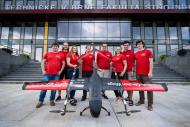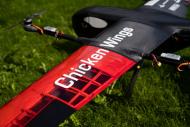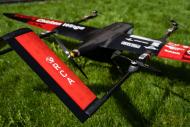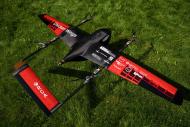Topic
Chickens with their heads in the clouds
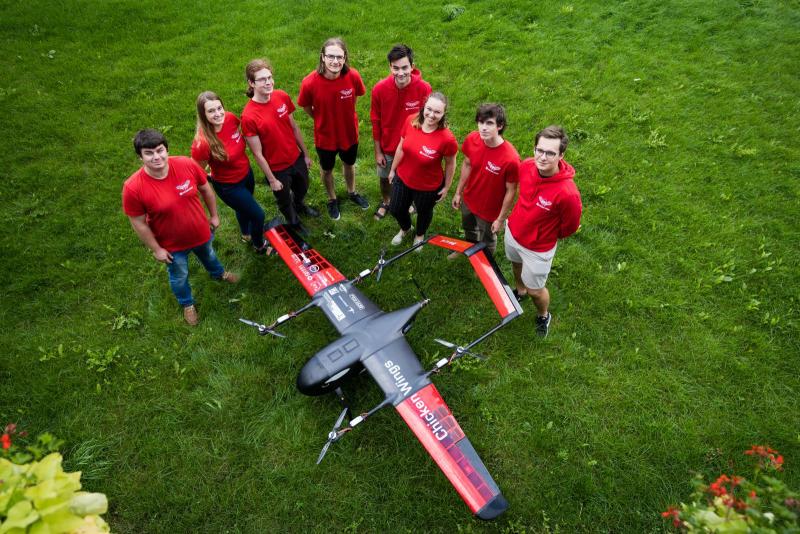
We are meeting for this interview in the Chicken Wings workshop at the Faculty of Mechanical Engineering during the holiday time. Half of the team spent the summer in Brno working on the production of the new aircraft. "It's been quite a difficult year for us. Covid has slowed everything down, but most importantly, we have had two races this season, which meant building two airplanes," explains team leader Adam Pilát.
With the Black Swan, they took part in the Air Cargo Challenge, where they finished fifth in the competition of 26 teams from different parts of the world. "This is a great success for us, seeing the quality of the other models, we were afraid we would not do so well. We saw a number of interesting constructions and ideas completely different from ours. It was inspiring, we may use some design elements in our aircrafts in the future," says Pilát, who has been a member of the team for three years, but due to the pandemic, this year's competition in Munich was his first opportunity to take part in an international competition.
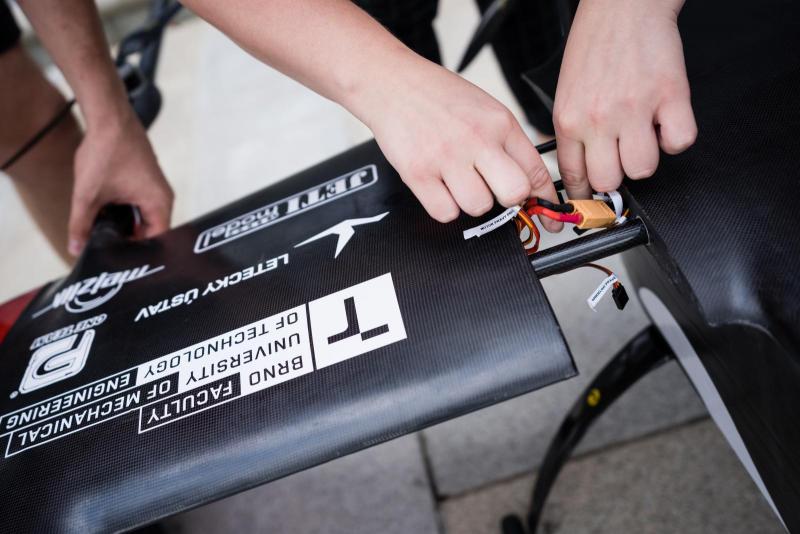
"We have never worked on a model with vertical take-off and landing capability. This means completely new requirements for the design of the propulsion system, as the aircraft combines a classic aircraft with some of the operational capabilities of a quadrocopter. The most critical phase is the transition from vertical to horizontal flight, this phase will be electronically assisted by an autopilot. Even in this respect, the ORCA model is new, so far none of our aircraft had been able to fly autonomously," Pilát describes.
In addition to conventional forward flight, the aircraft must be able to handle vertical take-off and landing.
ORCA, as the students called the aircraft, has a wingspan of three meters and a relatively high take-off weight of over twelve kilograms. The minimum range in the competition is set at ten kilometers. "This does not mean that the plane would be ten kilometers away from us, that would even be against the regulations, but the plane must at least have this endurance. Our task will be to photograph an area of 1,200 by 400 meters, where a certain number of targets will be located. The jury then evaluates how exactly we focused the targets, what amount of energy our aircraft consumed, and we will also present both the aircraft itself and the business plan, i.e. the efficiency of our design and production work," Pilát clarifies.
The ORCA model will be without exaggeration one of the most complex aircrafts of the Chicken Wings. That is why the team, currently consisting of twelve students of the Faculty of Mechanical Engineering, would welcome new reinforcements next season, even from other faculties and disciplines. "We are very happy to have mechatronic specialists in our team who are completely developing the photographing unit, without which ORCA could not have been created. But we would also welcome students from other study programs, for example, the business plan is not exactly our territory, here we would definitely appreciate to have someone from the Faculty of Business and Management. In return, we can offer the opportunity to gain invaluable experience," says Pilate.
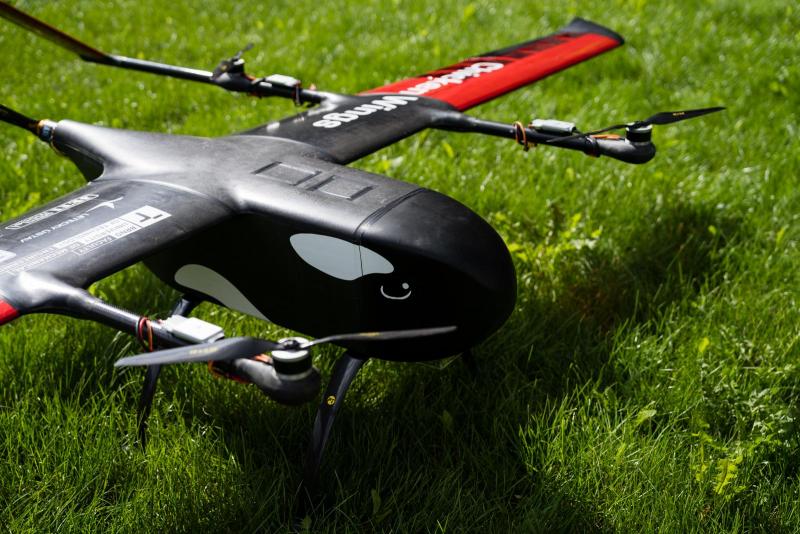
The construction of the ORCA aircraft has already been successfully completed and the airborne orca is now awaiting the test flights. But they are already planning to leave nothing to chance. "Because the transition phase from vertical to horizontal flight is critical, we are still working on a prototype intended to test the control unit. It takes a lot of time to make the whole plane and we definitely do not want to smash the racing plane during the very first attempt," Pilát adds with a smile. He will find out about how ORCA will eventually perform in the air a few days after the start of the semester.
When design helps. With the design of a dog wheelchair, the student succeeded in an international competition
The first woman at the head of the formula team has a great start
Obelix flew to the United States
Majáles returns after 2 years, royal candidates from BUT are ready to fight
I enjoy applying mechanical engineering to the human body, says doctoral student
